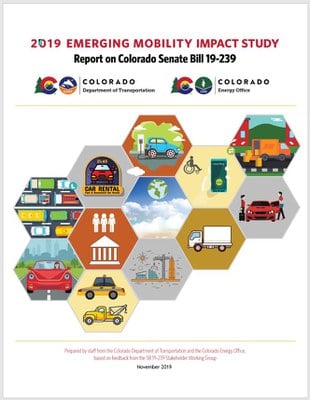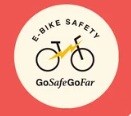Emerging Mobility
Projects
Internet Carpool Application Registration
Under Colorado House Bill 21-1076, carpool companies are required to register with the Colorado Department of Transportation beginning on October 1, 2021. This legislation separates carpool service companies from Transportation Network Companies (e.g. ride-hailing companies such as Uber and Lyft). For additional information, see the 'Questions and Answers about HB-21-1076' document below or Contact Us.
Emerging Mobility Studies: SB19-239
Colorado Senate Bill 19-239 requires CDOT to convene and consult with a stakeholder group to examine the impacts of emerging transportation technologies and business models, identify means of addressing impacts, and report findings and make recommendations to the general assembly.

E-Bike Safety Campaign
E-bikes are growing in popularity. They are a great multimodal option. However, they also pose new safety concerns. The E-bike safety campaign targets E-bike riders to provide education and safety resources.

COtransit
The Colorado Department of Transportation (CDOT) is leading the development of a COtransit platform to enable regional transit coordination and collaboration with transit providers that are part of the Colorado transit system. COtransit leverages real-time General Transit Feed Specification (GTFS) travel data sourced from rural transit providers across Colorado.
COtransit will begin as a pilot with the platform including centralized trip planning and ticketing across multiple transit providers. Upon a successful pilot deployment, future functionality expansion and additional partners are anticipated as the program matures and develops.
